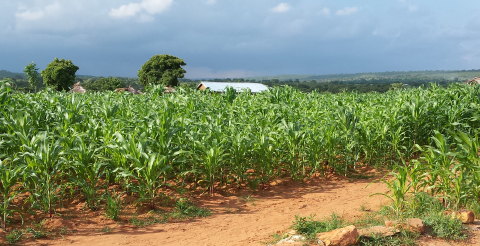Our Purpose
MAZA was established in Ghana in April 2015 as a social enterprise to provide reliable and affordable transportation for urgent health care needs in remote rural areas while improving livelihoods through job creation and increased access to markets. In these areas, motorized transportation options were scarce, distances from communities to hospitals were vast, and the quality of roads was typically poor which slowed access even further. We worked in two districts, Chereponi and Bunkpurugu-Yunyoo, both in the North East Region of Ghana.
Our Mission
To provide safe, accessible, affordable and reliable transportation for urgent health care needs in rural Ghana while improving livelihoods through job creation and increased access to markets.
Our Vision
To save lives and reduce disability in the rural areas of Ghana by enabling families to seek health care in a timely manner through a safe and reliable transportation network.
Our Activities

Geographic Access
MAZA increased geographic access to transportation for urgent health care by establishing a network of motorized tricycles in remote rural communities through subsidizing loans to local drivers. We ensured that our tricycles were available on demand in a timely manner through our 24-hour toll-free mobile phone number. Some passengers also chose to call their local MAZA drivers directly.

Financial Access
MAZA increased financial access to transportation for urgent health care by providing the service free of charge for pregnant women and sick infants and by ensuring that all other categories of people paid at-cost prices. We also engaged community leaders to ensure MAZA drivers were accountable to their mission of urgent health care transportation while also earning a living with the tricycles.

Early Care-Seeking
MAZA improved early care-seeking for pregnancy complications and sick infants in remote rural areas by educating community members about the dangers of home deliveries when they lived so far away from hospitals in the event of serious complications. We encouraged them to proceed to a health facility as soon as symptoms started so as to benefit the most from the care provided by nurses and doctors.
Our Achievements

MAZA improved Access to Health Care:
- Between December 2015 and March 2019, MAZA drivers transported 646 people in need of urgent and emergency health transportation to local health facilities.
- The majority of our passengers were women in labour; all of them survived and fewer than 1% lost their babies.
- Home deliveries in our catchment area reduced from 46% to 6% within a year.

MAZA improved Livelihoods:
- Drivers – through commercial uses of the tricycles when there were no urgent or emergency health cases.
- Farmers – by reducing post-harvest losses because of more timely and more affordable transportation of their farm produce to markets and storage.
- Traders – through access to more markets and more efficient uses of their time.
Why did we close down?
MAZA closed down its operations in March 2019 primarily because we had observed that the rural districts we were serving in North East Region, Chereponi and Bunkpurugu-Yunyoo, had experienced a rapid increase in the availability of motorbikes and motorized tricycles as their prices dropped and the potential commercial uses of the latter became increasingly apparent. In parallel, early care-seeking for labour and delivery had also improved, and pregnant women reported preferring motorbikes to motorized tricycles if they could still sit. It was only when labour was advanced and they could no longer sit that they would call a MAZA tricycle.
What’s next?
While MAZA team members may have moved on to other ventures, we will continue to advocate for better roads in the rural areas and a more reliable ambulance system, especially for referrals of emergency cases from health centres to hospitals, when paramedic support is critical.
